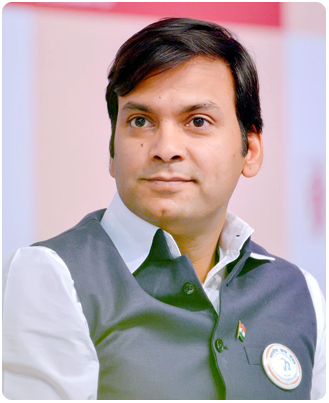
Shri. Rahul V. Karad
Chief Patron, CIPU
Executive President, MIT World Peace University, Pune
Taking forward Prime Minister’s vision on Vishwa Guru, CIPU has been conceptualised by academic leaders from the United States and India. This is an opportune time to work for transforming higher education in India. India has one of the largest higher education systems in the world, with over 50,000 institutions, including universities, colleges, and technical institutions. To transform higher education in India, several areas need to be addressed. First, there needs to be a greater focus on research and innovation. India needs to invest more in research infrastructure, support the development of research capacity, and encourage greater collaboration between academia and industry.
Second, there is a need to revamp the curriculum and pedagogy to make it more relevant to the needs of the 21st century. The curriculum should be designed to equip students with the skills they need to succeed in the digital economy, such as critical thinking, problem-solving, and creativity. Pedagogy has to focus on active learning and experiential learning to ensure that students are able to apply their knowledge in real-world situations.
Third, there is a need to ensure greater access to higher education. India has made significant progress in increasing enrolment rates, but there are still significant disparities in access to higher education, particularly among disadvantaged groups. There is a need to provide greater financial support to students from economically weaker sections, as well as to provide greater access to scholarships and other forms of financial aid.
Fourth, there is a need to address the issue of quality assurance. The quality of higher education in India varies widely, and there is a need to establish clear standards and mechanisms for quality assurance. Finally, there is a need to promote greater internationalization of higher education. India has a rich history of learning and scholarship, and there is a need to promote greater exchange of knowledge and expertise with other countries. This can be achieved through greater collaboration between Indian and foreign institutions, as well as through the development of joint research and exchange programs.
CIPU will work with multiple stakeholders, including government, academia, industry, and civil society. By addressing the issues of research and innovation, curriculum and pedagogy, access, quality assurance, and internationalization, India can create a higher education system that is truly world-class, becomes the knowledge capital of the world and able to meet the needs of the 21st century.
